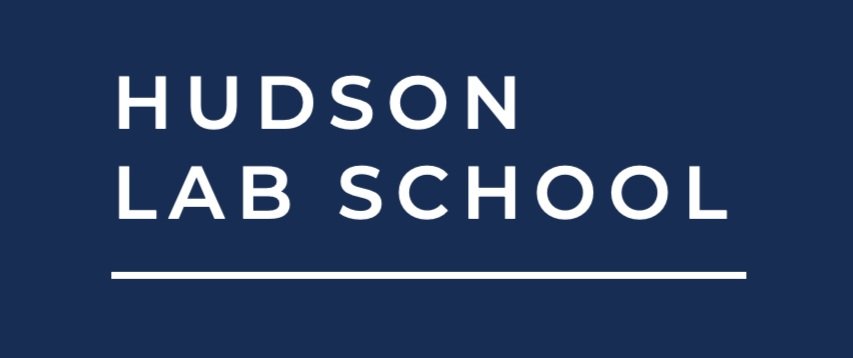PBL Prepares Girls For Their Future
From my college lit courses, my takeaway was that male authors historically published young and often while female authors analyzed, refined, reflected, perfected, and eventually published their works given enough encouragement. As a female, I was exasperated by their self-doubt. I could also relate.
In The Confidence Code for Girls, Katty Kay and Claire Shipman discuss how women and men approach confidence differently and how that difference typically serves women well at school, but then holds them back in the workplace. “Underqualified and underprepared men don’t think twice about leaning in. Overqualified and overprepared, too many women still hold back. Women feel confident only when they are perfect.” Ask any woman. This disparity is real. It’s not new. And it’s not going to change on its own.
Girls start school with a developmental edge over boys and they frequently receive praise for their ability to follow directions and their perfect behavior. As the seeds of perfectionism grow, many girls strive to over-deliver, which sets off a negative cycle where they can’t live up to their own overblown standards. In the current model of school, these traits work great. On many measures, girls outperform boys throughout school. According to Carol Dweck, Stanford psychology professor and author of The Growth Mindset, “If life were one long grade school, women would be the undisputed rulers of the world.”
And then puberty happens. Until the age of 12, the confidence of boys and girls are about the same. Once puberty sets in, girls’ confidence plummets and the average girl becomes far less confident than the average boy. In research by Kay and Shipman, boys were more apt to describe themselves as “confident, strong, adventurous, and fearless” while girls focused on “setting impossibly high standards for themselves. In their efforts to please everyone, achieve more, and follow rules, many girls are actually nurturing traits in themselves that set them up to struggle in the long run.” From the ages of 12 to 13, girls who say they are not allowed to fail rise from 18 to 45 percent, according to polling data.
The irony is that risk-taking, failing, persevering and mastery are the key components for building confidence. This is a well-known formula played out in every hero journey, yet it has no role in our current education system. If students make a mistake, it could threaten their GPA or class standing. For perfectionists, taking risks is not condoned. And then these well-meaning, hard-working, rule-following women enter the workforce hindered by all the traits that propelled them through school.
Kay and Shipman point to evidence that acclimating girls to risk-taking and embracing mistakes during middle school can significantly impact their future success. As a recovering perfectionist, I recognized this truth firsthand. My hesitation and self-doubt led me to pass up on too many opportunities. Meanwhile, our older daughter was well on her way down the perfectionist track. She was “winning” according to traditional learning standards, but she stopped taking risks because making a mistake felt unbearable.
So in 2017, my husband and I founded Hudson Lab School, a progressive, project-based learning (PBL) school. We chose PBL because it empowers students to think about the big picture while requiring complex critical thinking, collaboration, creativity, problem-solving, decision making and investigation. Students are involved in the inquiry process from the start, learning and applying content, concepts and skills while also figuring out what they want to do with what they’re learning.
PBL helps students to develop calculated risk-taking skills and counters the fear of failing that perpetuates the perfectionism tropes and confidence gap for girls and boys alike. PBL redefines learning as a messy, dynamic, interdisciplinary, action-oriented process that is iterative with many possible solutions rather than one correct answer. It aligns educational metrics with the greater world outside of schools where essential skills like time management, public speaking, leadership, critical thinking, creativity and collaboration have greater significance than test-taking skills or rote memorization.
By moving our daughter to a project-based learning (PBL) environment, we changed the game of school. With the focus on agency, she developed skills that will help her thrive in any career path she chooses. She learned how to think critically and creatively, how to work with others to plan and execute projects on time, how to approach challenging problems using the Design Thinking process, and how to speak publicly and express her ideas with clarity and purpose.
Now in high school, my daughter and her friends from Hudson Lab School are leaders in their communities. It’s remarkable to see how they own their learning and how they approach their teachers and coaches with a spirit of collaboration. They have so much well-founded confidence in their process to solve any problem—whether academic or social—with resilience, creativity and empathy.
Hudson Lab School prepares all students for the future, but I urge parents with daughters who excel at school to consider whether she’s simply playing the game of school or developing the confidence to take risks and make mistakes along the way towards determining her own path. In a world where confidence matters as much as competence, let's ensure our girls are ready to lead.
